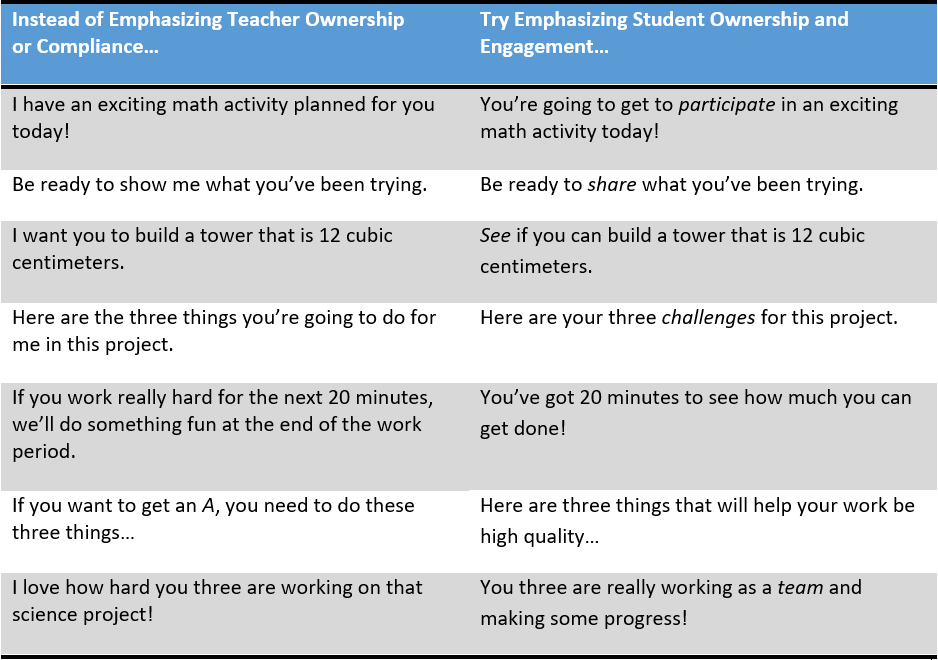You planned an incredible learning activity. It’s active and interactive. It’s packed with intrinsic motivators such as purpose, autonomy, and fun. You’re certain your students will love it and will have incredible energy for the work, and you can’t wait to watch them dig in with enthusiasm.
And then you get going, and it seems to fall flat. It’s not that the kids don’t enjoy the activity, but they seem more concerned with what you want from their work than with the work itself.
“How much do we have to do?” Silas asks.
“Is this going to be graded?” Lisa wants to know, hinting that she’ll only really care if it is.
“Is this good enough?” asks Davia. “Is this what you wanted us to do?”
What gives? Why do students seem so much more concerned with compliance than being authentically engaged? Why do they seem to feel so little ownership for their work? And is there anything you can do about it?
Minor Shifts in Language
Consider the language you use with students. Do you tend to emphasize student or teacher ownership? Does your language emphasize engagement or compliance? The following chart is similar to those I offer in both the ASCD quick reference guide Teacher Talk That Matters and the book What We Say and How We Say It Matter.
As you read this chart, notice how sometimes even very minor shifts in what we say can have a profound impact on how students might feel about work.
Figure 1: Teacher Talk That Supports Student Ownership and Engagement

Isn’t it incredible that even small changes (“Be ready to show me…” vs. “Be ready to share…”) could transform how students respond to us?
If you are interested in examining your language but don’t know where to start, here’s a suggestion:
The next time you’re teaching a lesson, record yourself. Use a tablet or your phone to record a video or an audio clip of your language. Listen to it later and jot down phrases that seem to indicate teacher ownership or compliance and then try coming up with some alternatives (like in Figure 1 above). Keep this chart handy during future lessons so you can remember some new phrases to try. You might be surprised by how your students’ engagement begins to blossom!





